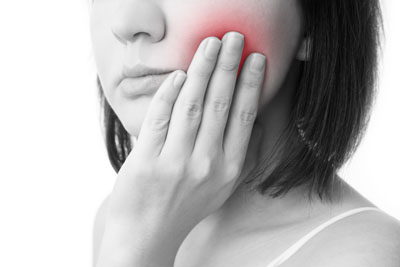 Temporomandibular joints better-known as TMJ connect your jawbone to your skull. There is one on each side of your face. Your TMJ act as sliding hinges, allowing you to move your jaw when you speak, eat or otherwise move your mouth.
Temporomandibular joints better-known as TMJ connect your jawbone to your skull. There is one on each side of your face. Your TMJ act as sliding hinges, allowing you to move your jaw when you speak, eat or otherwise move your mouth.
A TMJ disorder occurs when one or both of these joints becomes damaged due to accidents, misaligned teeth, grinding your teeth, or inflammation due to other health issues. Regardless of the cause, TMJ disorders tend to come with lots of pain and discomfort.
Fortunately, the discomfort and pain with most cases of TMJ disorders can dissipate with therapy, medication, and surgery. Surgeries are typically a last resort option after more conservative solutions fail to address the issue.
Symptoms of temporomandibular joint disorders include:
-
Jaw pain
-
Pain in the TMJ
-
Ear, facial, and neck pain
-
Pain when opening your mouth
-
Difficulty chewing
-
Locking of TMJ joints
-
Clicking or popping sounds when the mouth is moved
-
Headaches
Figuring out if you need to see a dentist
We recommend calling us if you experience constant pain and tenderness in your jaw. You should also seek professional help if you are having a hard time fully opening or closing your mouth.
We will narrow down possible causes of your disorder and come up with the least invasive solutions possible.
Causes of TMJ disorder
As we mentioned earlier, your TMJ serve as hinges that can slide from side to side. The bones that meet at the temporomandibular joint has cartilage that protects it and a disk that serves as a shock absorber – which is normally enough to move the jawbone without issue.
A TMJ disorder occurs if:
-
The disk becomes misaligned
-
The disk becomes eroded
-
The cartilage is compromised by impact
-
The cartilage is compromised by diseases such as arthritis
Other factors that can put you at an increased risk of developing a TMJ disorder include:
-
Jaw injuries caused by trauma
-
Persistently grinding and clenching teeth
-
Diseases like osteoarthritis and rheumatoid arthritis
-
Connective tissue diseases
Dentists typically have three ways they go about treating TMJ disorders:
1. Medication
Your dentist might prescribe pain-relievers to help you deal with the pain and inflammation. Over the counter medication will at least provide temporary relief for the pain. However, store-bought medication will not be a permanent treatment option.
2. Therapy
For less severe cases, your dentist might decide to go with TMJ strengthening exercises that are designed to help rebuild your jaw muscles. You might also be prescribed a mouth guard or braces.
3. Surgery
Surgery is the last resort solution we will consider when nothing else works as a treatment. In these cases, we will go over all of the details with the patient beforehand.
That’s not all…
For more TMJ information or to schedule an appointment with Healthy Smiles Dental Care,request an appointment in our Mason dental office here: https://healthysmilesmason.com. Or call us at (513) 339-1032.
Related Posts
Schedule a Dental Restoration and Save Your Tooth
Many people lose hope when they realize their tooth is facing decay, but our dental restorations can save your tooth. When you have a cavity or another form of damage, it is imperative that you …
What Are Implant Supported Dentures?
The transition to dentures can be both an exciting and unnerving time in your life. First of all, your lifestyle is going to improve immeasurably: you'll be able to eat, talk, swallow and smile in …
As a Cosmetic Dentist, We Can Tell You About Dental Veneers
Many people prefer to have their teeth drastically improved by a cosmetic dentist, with the least amount of chair time possible. We understand how hard it is to set your valuable time aside in order …
Planning for Your First Family Dentist Visit
Visiting the family dentist may not be the most fun trip in the world, but it is one that helps families keep up their oral hygiene and great teeth together. There are numerous advantages to …

